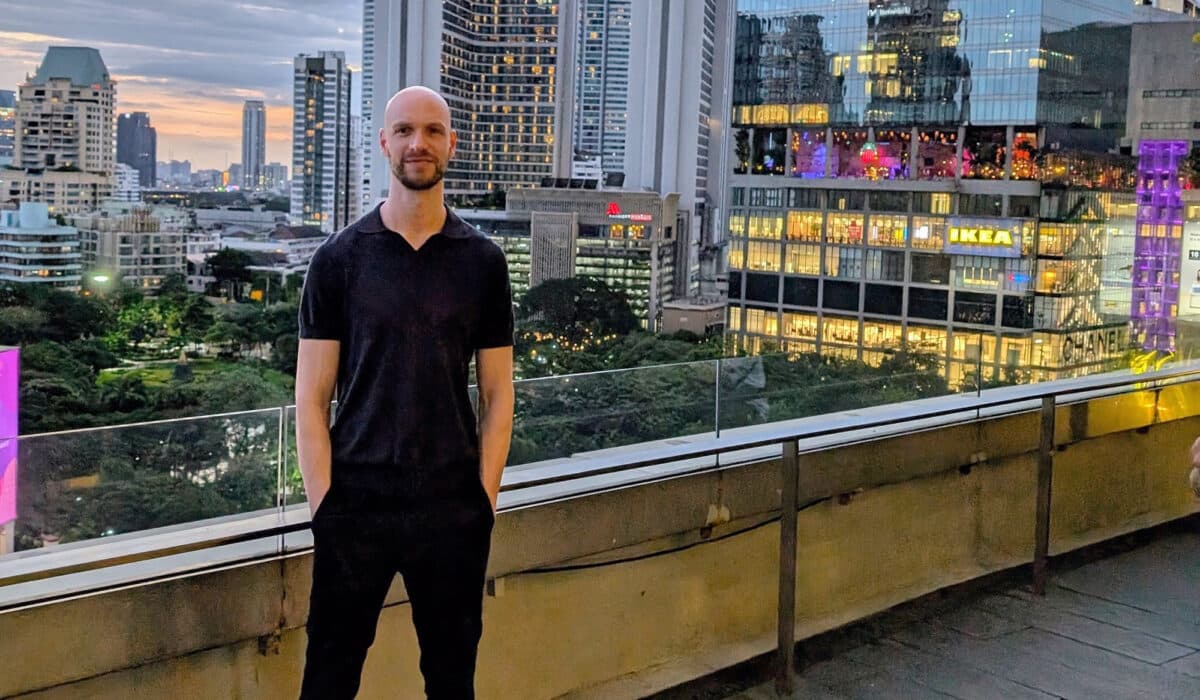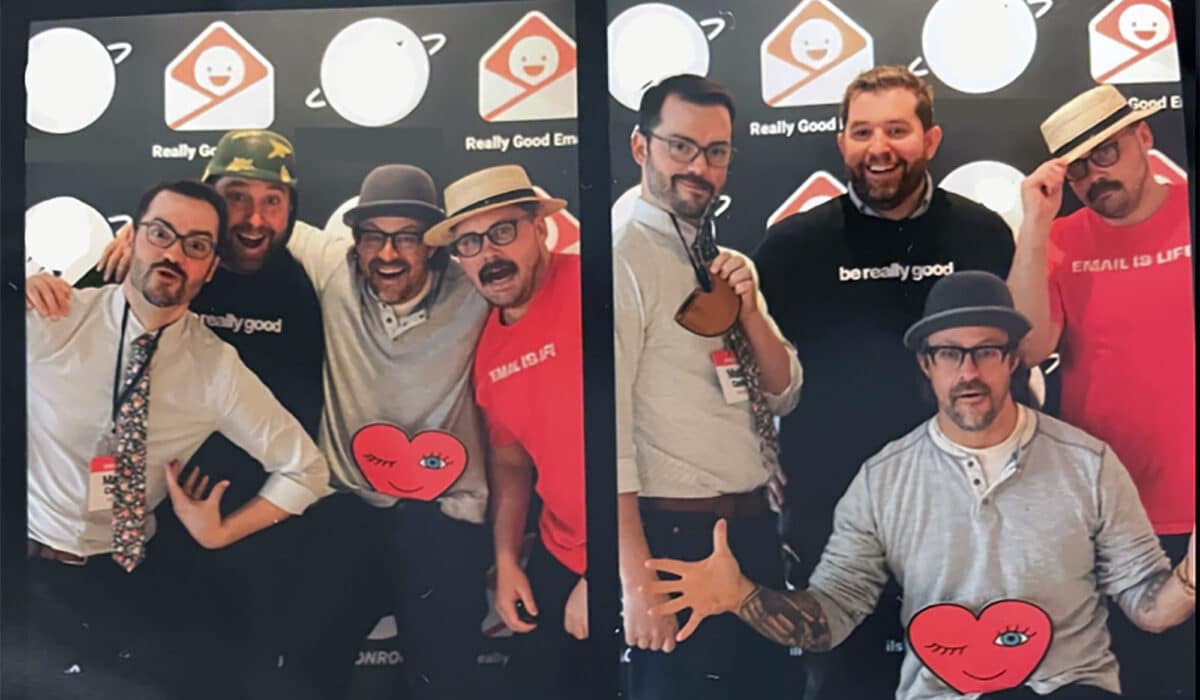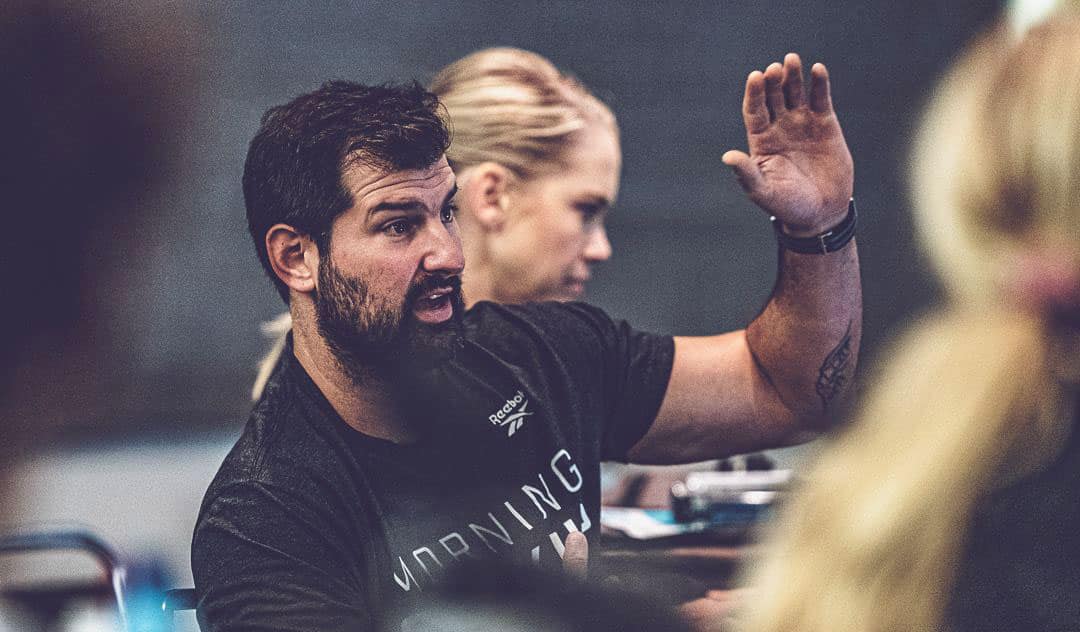Many young professionals dream of ditching their office jobs to launch a business that provides the freedom and funds to explore the world. Biron Clark actually lived this dream.
Feeling uninspired by his work as a corporate recruiter, Clark quit his job and founded career advice website Career Sidekick in 2013 to fund his travels around the world. The business eventually sold to Amai Group in 2022.
Building a business to fund a digital nomad lifestyle
Clark was 27 when, inspired by Tim Ferriss’s bestseller The 4-Hour Workweek, he quit his job in recruiting to try out the “digital nomad” lifestyle.
“I wanted freedom and I wanted to see the world. So I bought a one-way ticket to Chiang Mai, Thailand,” he told Freedom is Everything.
Initially he lived off $19,000 in savings from his corporate days and freelance digital marketing work he found on platforms like Upwork. But Clark was also working on Career Sidekick as a side project.
“While working as a recruiter, I realized that most people weren’t sure how to get noticed by top companies and get the jobs they really wanted,” he explained in an alumni profile from his alma mater UMass Dartmouth.
“I started the job search advice website Career Sidekick as a side project to share what I was learning as a recruiter, including a lot of ‘insider’ info that job seekers don’t typically see in the hiring process,” he continued.
When Biron arrived in Thailand the site was only earning $100 a month, but he “hoped that someday, the blog would generate enough income for me to live off,” he told Freedom is Everything. “I told myself that if I could get the blog to earn $1,000 in a month, I’d quit everything else and go all-in. Once I decided to focus on this goal, it only took one or two months for it to happen.”
How Career Sidekick went from casual side project to profitable business
How did Clark turn his casual side project into a profitable business? He explained in an Entrepreneur article that focus was key.
Career Sidekick, he wrote, “began as a general career advice site but never grew. It was too scattered and broad to get noticed. So I narrowed my niche and decided to cover only job-search advice. That’s when the website began to grow.” He even narrowed his focus further in the site’s early days, exclusively offering job interview advice. Its growth accelerated.
Career advice is a crowded field, but Clark looked for ways to turn that into his advantage.
“I saw all of these larger websites in my niche and wondered how I could get to those levels,” he told They Got Acquired. “I realized that I can use those competitors’ sites as a blueprint and gather ideas based on what was working for them. I took inspiration from their marketing, website layout, choice of topics/content, and more.”
He also learned to collaborate with other businesses in the space, guest posting on larger career sites to gain exposure and building relationships with their founders. “The law of reciprocity is powerful,” he wrote in Entrepreneur.
Seeking out advice and support from private entrepreneur-focused Facebook groups, online forums, and relevant courses also helped Clark grow his business. Not all these resources were free, but Clark has learned that investing in himself and his business pays off.
“At the very beginning, I was far too hesitant to spend money and invest in the business. I learned that trying to save a few hundred dollars (on website software, marketing tools, etc.) often costs you far more in the long-run. My business is still highly profitable… 80%+ profit margin… just because of the nature of the business. But I always look for ways to invest and buy the best tools/resources for myself. It’s worth it,” he explained to Failory.
Deciding to sell the business to Amai Group
Clark’s blog eventually attracted more than 1 million visitors a month, earning him over $50,000 a month in revenue through e-books and courses, affiliate marketing, and display advertising. “Organic search is our biggest traffic source. Of our 1 million monthly visitors, more than 80% come from search,” Clark told Failory in 2021.
In 2022, Clark told Starter Story, he decided to take Career Sidekick’s “e-books and courses off the market to focus on growing our other revenue streams.”
Since then, many content businesses that ran largely on search traffic have lost both visitors and revenue because of changes to Google’s algorithm and advances in AI. That has made some buyers in 2024 and beyond wary of Google-reliant businesses.
But the pivot towards display advertising worked out well for Clark financially. “Display ads ended up earning me 10x more than e-books ever did, with far less hassles,” he told They Got Acquired.
To run the business, Clark used only three contractors: a writer, editor and developer.
“The blog took years to build momentum on and grow, but I knew that’s the type of platform I was building. It’s something that can grow exponentially and earn true ‘passive’ income. That type of business is often slower to start than consulting, freelancing, or another service business. I was willing to wait,” Clark explained to Freedom is everything.
The company’s profits funded his travels to countries like Vietnam, Malaysia, Colombia, Mexico, and Panama. But Clark told They Got Acquired that “after a decade of running the website, I felt it was time for a new project, possibly in a new niche.”
Did his earlier decision to focus on advertising affect his ability to sell the site? Clark weighed the pros and cons of this move carefully, but believes it ended up being a net win for attracting a buyer.
“Having fewer revenue streams, or less balance among revenue streams, is seen as a risk by potential buyers. But some may also see it as an opportunity. Nobody wants to buy a business that has been optimized/grown to its max,” he explained. “I never would have reached the levels I got to (or attracted the buyer I did) if I hadn’t recognized the one revenue stream that had the greatest potential and then scaled it.”
Clark’s advice for other founders considering selling
Through broker FE International, he located that buyer in Singapore-based Amai Group, a provider of solutions for Shopify merchants.
Clark describes his collaboration with FE International as “fantastic,” but ironing out the deal was still complex and challenging.
“It felt like running a second business, in terms of the attention required (emails to answer, information to provide, decisions to make),” he said. “If you’re going to sell an online business, just figure that you’re going to feel like you’re running a second business for 2-4 months while selling. In the end, it was worth it.”
The sale closed for an undisclosed sum in December of 2022. What has Clark been doing since? Traveling, of course, though he is considering starting another venture in the future.
Clark offers two tips to other founders considering selling their companies. “Talk to a few M&A brokers ahead of time,” he advised. “It costs nothing to have a conversation and hear about how the market is doing and what price/multiple you could potentially go to market with.” Also consider picking up the book Before The Exit.
“I read it in a single afternoon. It contains some great thought exercises to help you know whether it’s a good time for you to sell,” Clark said.



